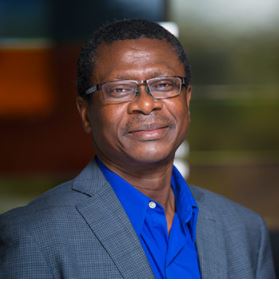Investigating the Impact of Bidirectional North-South Student Mobility Programs on Host Communities in the Global South
International Service Learning (ISL) programs are intended to provide learning experiences abroad in which student activities are aimed at ameliorating a community problem or issue. Its popularity at universities across North America has increased over the last twenty years. Scholars who study ISL programs that send North American students to countries in the Global South are concerned that the unequal North-South dynamic inherent in many of these programs reinforces the superior-inferior dynamic of neo-colonialism. To address this, many have suggested greater equality between institutions from the Global North and Global South in program planning, decision-making, and execution, as well as “South-North mobility options” whereby Southern students and faculty also travel for educational experiences in the North (bidirectional programs). However, whether these more reciprocal and bidirectional programs succeed in avoiding the replication of neo-colonial perspectives, relationships, and interactions remains understudied and there is a knowledge gap concerning the impacts of bidirectional student mobility programs on Southern host communities.
Lead researcher Dr. Robert Ame (Wilfrid Laurier University), and co-investigators Dr. Andrew Robinson (Wilfrid Laurier University), Dr. Stacey Wilson-Forsberg (Wilfrid Laurier University) and Dr. James Dzisah, (University of Ghana), are examining ISLs that will address this gap. Their project, supported by a SSHRC Insight Development Grant ($59,116), will employ a qualitative case study approach to examine host community perceptions of the impacts in the Global South of a reciprocal and bidirectional North-South student mobility program. The case study will be Wilfrid Laurier University’s multiyear bidirectional student mobility program with universities and organizations in Ghana. The program has been funded by the Canadian International Development Agency (2011-2013), Wilfrid Laurier University (2013-2014), and the Queen Elizabeth II Diamond Jubilee Scholarship Fund (2014-2021). The study will focus on host community perspectives on the program’s key areas. Its goal is to identify if significant differences exist between the views of partners in this reciprocal, bidirectional relationship when compared to existing research findings of host community perspectives within unidirectional relationships. Using semi-structured, in-depth interviews with key informants, the project’s objectives are to:
- i) identify the impacts of South-North student mobility programs on students, their colleagues, and academic departments in the Global South; ii) determine if bidirectional North-South student mobility programs create more balanced, less colonial relationships with host community organizations than unidirectional programs; iii) describe how bidirectional North-South student mobility programs affect university-to-university relations; iv) share the results of the research with practitioners, policymakers, and scholars working within the ISL sector.
The study will contribute to the knowledge of ISL programs in the Global South to reciprocal, bidirectional student mobility programs. The study’s findings will be of interest to decision-makers and practitioners involved in funding and delivering international mobility programs, including university faculty and staff, organizations like Universities Canada, and NGOs. Understanding how student mobility programs can help ameliorate neocolonial relationships and worldviews will also benefit society more broadly.
